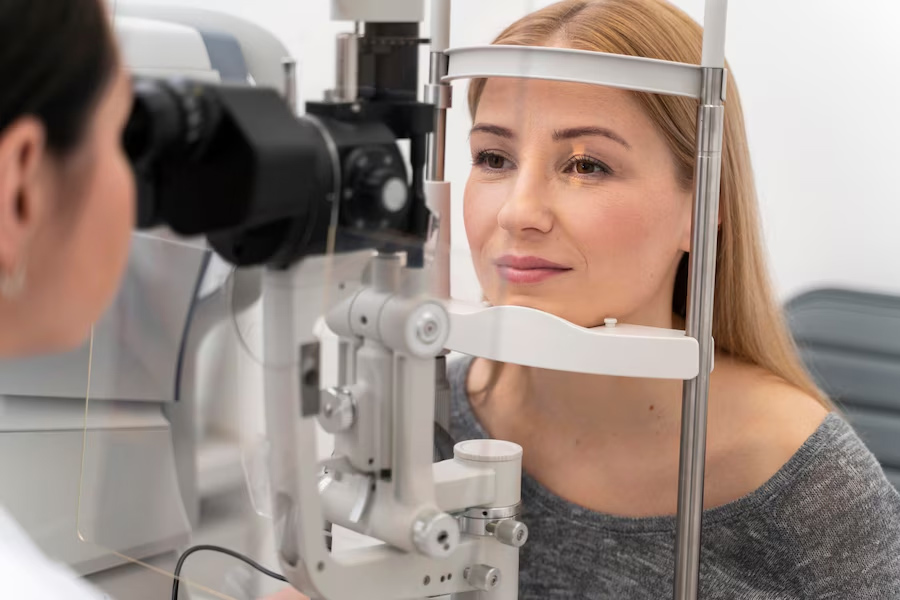
Stress can affect our bodies in several ways. Not only can it trigger emotional and behavioural changes, but it can also lead to chronic health problems such as high blood pressure, heart disease, stroke, obesity, and diabetes. In addition, prolonged stress can also impact our eye health and affect our vision. It may be difficult to connect the dots now. But continue reading to find out the link between stress and vision and learn about ways to manage the same.
Table of Content:-
Also Read: Eye-Twitching Goes Beyond Superstition: Here's What It Really Means
The Link Between Stress And Vision

Stress, as we all know, is the body's way to cope with perceived threats. It triggers a fight-or-flight response, in which the body releases several hormones like cortisol and adrenaline, which can lead to physical symptoms including eye strain and blurred vision, Dr Anjal Shah, Consultant Ophthalmologist, Cataract and Refractive Surgeon, Dr. Sachdev Maxivision Eye Hospital, Surat, tells the OnlyMyHealth team.
Additionally, the American Academy of Ophthalmology (AAO) suggests that high levels of these hormones may also lead to elevated eye pressure, light sensitivity, eye twitching, or even headaches in people.
In severe cases, it may also worsen existing eye conditions or even increase the risk of developing diseases like glaucoma. This was suggested in a 2021 study published in Scientific Reports, wherein researchers followed over 250 patients with glaucoma for at least two years and found that people with higher anxiety scores were more likely to experience faster thinning of the retinal nerve fibre layer (RNFL) and bleeding in the optic disc, both signs of worsening glaucoma.
Stress And Blindness

“While stress can cause temporary vision changes like eye strain and blurry vision, prolonged stress can exacerbate existing eye problems and even increase the risk of vision loss,” says Dr Shah.
Highlighting the same, the authors of a 2018 study published in the EPMA Journal suggested that stress management techniques like meditation and therapy could be helpful for people with vision loss, not just to improve their mental well-being but potentially to slow vision loss as well.
Additionally, regular eye exams are also essential for detecting and addressing any vision changes or conditions early on, Dr Shah advises.
Also Read: Stress Symptoms: Physical Effects of Stress On The Body
On Managing Stress-Associated Vision Problems

Dr Shah says, "Managing stress-related vision problems involves addressing both the stress itself and the associated symptoms."
Simple techniques to relieve stress include:
- Deep breathing
- Meditation
- Progressive muscle relaxation
You may also:
- Take regular breaks from screens.
- Practise the 20-20-20 rule (looking at something 20 feet away for 20 seconds every 20 minutes).
- Ensure proper lighting to reduce eye strain.
Most importantly, seeking professional support through therapy or counselling may help manage stress, according to Dr Shah.
She adds, "If symptoms persist or worsen, consulting an eye care professional is essential for proper diagnosis and treatment of any underlying eye conditions."
Also watch this video
How we keep this article up to date:
We work with experts and keep a close eye on the latest in health and wellness. Whenever there is a new research or helpful information, we update our articles with accurate and useful advice.
Current Version
